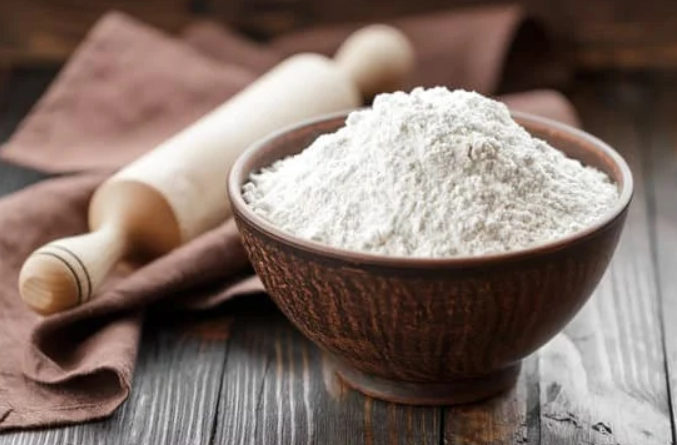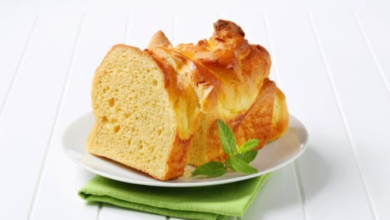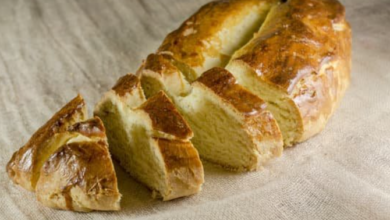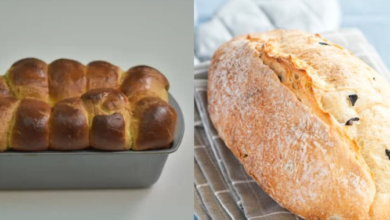What type of flour is used in brioche?

What To Know
- Pastry flour with lower protein content creates a more open and tender crumb, while bread flour produces a denser and chewier crumb.
- By understanding the different types of flour and their impact on the final product, bakers can achieve a harmonious balance of texture, flavor, and rise.
- Bleached flour has a whiter appearance and a milder flavor, while unbleached flour has a more rustic flavor and a slightly beige color.
Brioche, the indulgent French pastry, is renowned for its golden-brown crust, fluffy interior, and buttery flavor. But what kind of flour is the secret behind its distinctive texture and taste?
The Importance of Flour in Brioche
Flour serves as the backbone of brioche, providing structure and texture. The type of flour used significantly impacts the final product, influencing its rise, crumb, and overall quality.
Types of Flour Used in Brioche
Bread Flour
- High in protein (11-13%)
- Forms strong gluten, resulting in a chewy texture
- Ideal for the main component of brioche dough
Pastry Flour
- Lower in protein (8-10%)
- Creates a more tender crumb
- Typically used in combination with bread flour for a balanced texture
All-Purpose Flour
- Moderate protein content (10-11%)
- A versatile option that can be used if bread flour is unavailable
- Produces a compromise between chewiness and tenderness
The Perfect Flour Blend for Brioche
The ideal flour blend for brioche combines the strengths of different flours:
- 70% bread flour for structure and chew
- 30% pastry flour for tenderness and crumb
- Small amounts of cake flour or high-gluten flour can be added for extra lift or elasticity
Other Flour Considerations
- Protein Content: Higher protein content leads to a chewier texture, while lower protein content results in a more tender crumb.
- Starch Content: Flour with higher starch content absorbs more water, producing a moister brioche.
- Bleaching: Bleached flour produces a whiter brioche, while unbleached flour adds a more rustic flavor.
How Flour Affects Brioche
Rise: Strong flour with high protein content promotes a strong gluten network that traps gas, allowing the brioche to rise higher.
Crumb: Pastry flour with lower protein content creates a more open and tender crumb, while bread flour produces a denser and chewier crumb.
Flavor: Different flours can impart subtle flavor differences, with unbleached flour providing a more pronounced wheat flavor.
Tips for Using Flour in Brioche
- Use high-quality flour for optimal results.
- Measure flour accurately to ensure the correct gluten development.
- Sift flour to remove any lumps and aerate it.
- Allow the dough to rest after kneading to develop the gluten.
- Proof the dough in a warm and humid environment to promote maximum rise.
Summary: Flour’s Flourish in Brioche
The choice of flour is paramount in creating the perfect brioche. By understanding the different types of flour and their impact on the final product, bakers can achieve a harmonious balance of texture, flavor, and rise. Flour is the canvas upon which the artistry of brioche is painted, transforming simple ingredients into a culinary masterpiece.
FAQ
1. Can I use only bread flour for brioche?
Yes, but it will result in a chewier brioche with a denser crumb.
2. What is the difference between bleached and unbleached flour?
Bleached flour has a whiter appearance and a milder flavor, while unbleached flour has a more rustic flavor and a slightly beige color.
3. Can I substitute cake flour for pastry flour?
Yes, but cake flour has a lower protein content, so use it sparingly to avoid a too-tender brioche.
4. How do I know if my brioche dough has enough gluten?
The dough should be elastic and slightly sticky. If it tears easily, it needs more kneading.
5. Why is my brioche dense and crumbly?
This could indicate over-kneading, insufficient rising time, or using too much flour.



